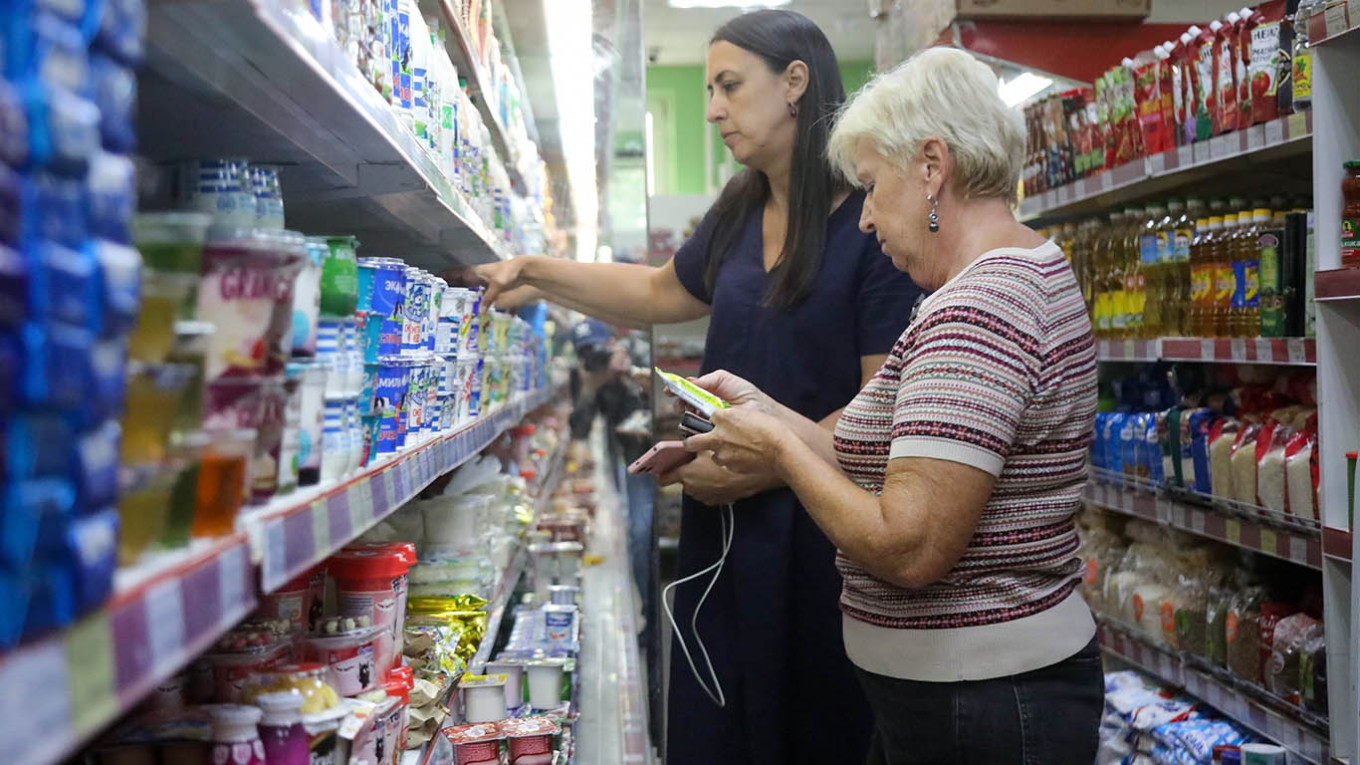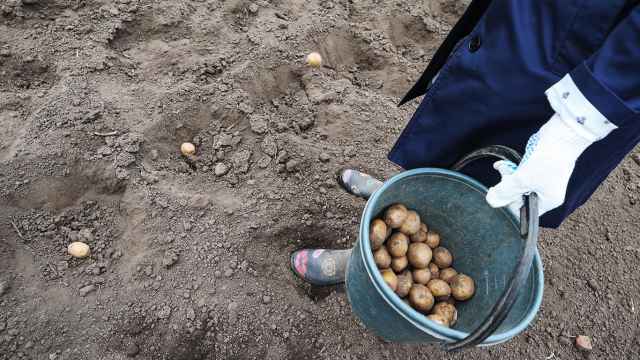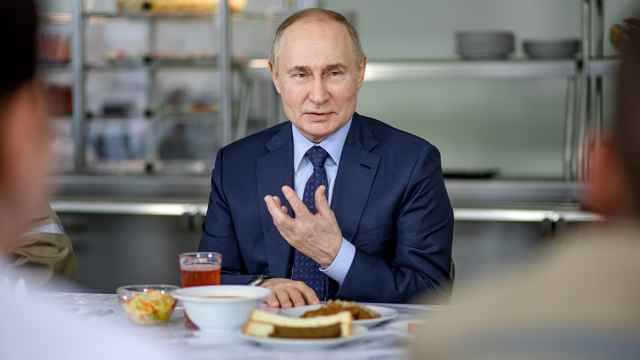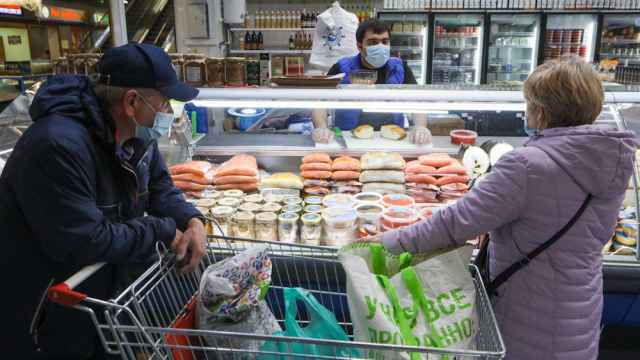The Russian government is considering sweeping new regulations to cap prices on a range of essential food items in a bid to rein in inflation driven by rising production costs and mounting wartime spending.
According to a letter obtained by the Kommersant business daily, the Agriculture Ministry has proposed amendments to the country’s trade laws that would restrict how prices are set for widely consumed staples such as milk, eggs, potatoes and sugar.
The letter, circulated to major agricultural industry associations earlier this month, outlines two possible approaches.
Under the first, at least 80% of sales in designated product categories would, by 2026, be carried out under fixed-price, long-term contracts between producers and retailers. These contracts could only be renegotiated once per year and could not be terminated without a court ruling.
The second, more interventionist option would introduce a government-imposed “price corridor” of minimum and maximum prices for 80% of goods in the affected categories.
The proposed list includes milk, eggs, sunflower oil, carrots, tomatoes, onions, apples and other staples.
The proposed measures are part of a broader government effort to tame inflation as poor harvests, supply chain disruptions and high defense spending continue to drive up food prices. Responses from trade groups were requested by July 25.
But the plan has already drawn criticism from across the food industry, where association heads warn that price controls could create more problems than they solve.
Sergei Yushin, head of the National Meat Association, said that production costs are influenced by a range of factors, including legal initiatives as well as expenses for electricity, fuel and logistics. In his view, strict regulation would render production unprofitable and potentially halt operations.
Dmitry Vostrikov, executive director of the Rusprodsoyuz food suppliers union, said that while suppliers and retailers can negotiate price-changing formulas based on critical cost factors and regional conditions, these agreements should remain voluntary and not be mandated by law.
Others warn the proposed “price corridors” would fail to address one of the main drivers of inflation — retail markups — and would unfairly burden producers and wholesalers.
“This would create an uneven playing field,” one industry source told Kommersant.
Opposition has also come from some of the country’s largest retailers.
X5 Group, which operates the popular Pyaterochka, Perekrestok and Chizhik supermarket chains, said in a statement that the existing system of negotiated contracts “has demonstrated its effectiveness over the years” and warned that prolonged price fixing would introduce additional risks for the market.
The proposed amendments would be incorporated into Russia’s law on state regulation of trade. If adopted, the rules would take effect on March 1, 2026.
Under the first option, the required share of long-term fixed-price contracts would increase to 85% in 2027 and 90% in 2028.
As of June, long-term contracts accounted for 60% of potato sales and 75% of egg sales, according to the Association of Retail Companies.
A Message from The Moscow Times:
Dear readers,
We are facing unprecedented challenges. Russia's Prosecutor General's Office has designated The Moscow Times as an "undesirable" organization, criminalizing our work and putting our staff at risk of prosecution. This follows our earlier unjust labeling as a "foreign agent."
These actions are direct attempts to silence independent journalism in Russia. The authorities claim our work "discredits the decisions of the Russian leadership." We see things differently: we strive to provide accurate, unbiased reporting on Russia.
We, the journalists of The Moscow Times, refuse to be silenced. But to continue our work, we need your help.
Your support, no matter how small, makes a world of difference. If you can, please support us monthly starting from just $2. It's quick to set up, and every contribution makes a significant impact.
By supporting The Moscow Times, you're defending open, independent journalism in the face of repression. Thank you for standing with us.
Remind me later.






